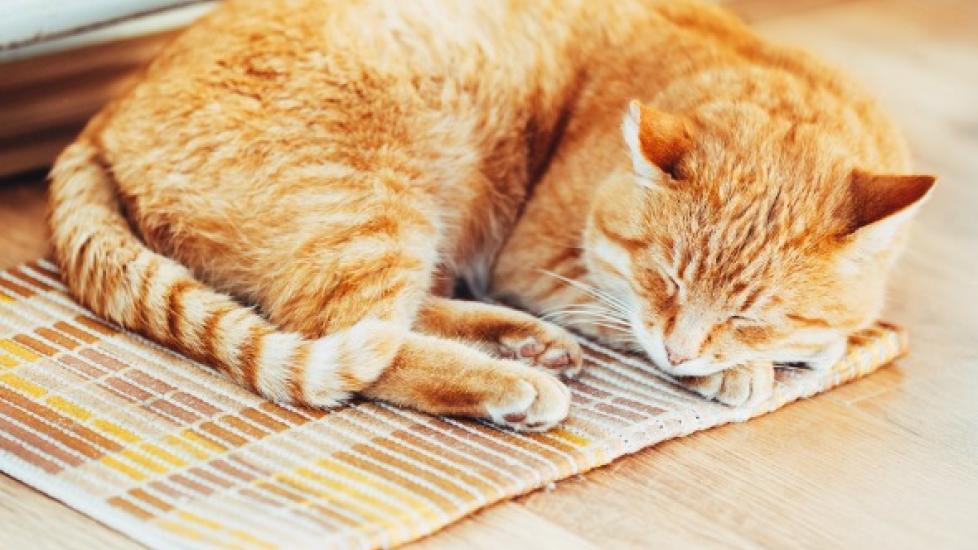Insufficient Urine Production in Cats
Oliguria and Anuria in Cats
Oliguria is the medically defined term for a condition in which an abnormally small amount of urine is produced by the body - with urine production at a rate of less than 0.25 milliliters per kilogram per hour. Anuria is the medical term used to describe a condition in which essentially no urine is produced by the body, with urine production at a rate of less than 0.08 milliliters per kilogram per hour.
Physiologic oliguria occurs when the kidneys limit loss of renal water in order to preserve body fluid and electrolyte balance. Pathologic oliguria results from severe impairment of kidney tissues, which can occur as the result of a number of factors. Anuria may result from kidney disease, or obstruction of urinary flow.
Symptoms and Types
Generally, a key symptom of oliguria or anuria is a decreased amount of urine being produced and excreted. Additional symptoms vary depending on the type of oliguria or anuria present. Signs of physiologic oliguria include dehydration, pale mucous membranes, a weak pulse, a rapid or irregular pulse, and a history of fluid loss (through excessive vomiting or diarrhea, for example). Signs of pathologic oliguria typically include a history of progressive kidney disease with symptoms such as poor appetite and weight loss. Signs of anuria may be observed during a physical examination, with revealing symptoms such as fluid infiltration into the tissues surrounding the urinary tract, and pain in the abdomen on palpation.
Causes
Various conditions may be responsible for different types of oliguria and anuria. Physiologic oliguria may be occasioned by renal hypoperfusion, which is caused by low blood volume or blood pressure, or hypertonicity, an increased pressure of fluids in the body. Pathologic oliguria is usually due to acute (sudden) kidney failure, or chronic kidney disease. Anuria may result from a complete obstruction in the urinary tract, a rupture in the urinary excretory pathway, or from very severe kidney failure.
A number of risk factors may increase the odds of developing oliguria or anuria, including dehydration, low blood pressure, kidney disease, liver disease, trauma, such as from a car accident, sugar diabetes, and multiple organ failure.
Diagnosis
Key diagnostic procedures include an urethrocystoscopy, which uses an insertable diagnostic tool to view the interior of the urinary tract and bladder wall, and which may provide evidence for obstruction or rupture of the urinary tract. Additional tests may include urine analysis, an electrocardiograph (ECG), abdominal radiographs and ultrasounds to rule out or confirm a urinary obstruction.
Treatment
Oliguria and anuria are medical emergencies that require immediate treatment. If left untreated, these conditions can lead to death within hours or days. Proper treatment is dependent upon the cause of the condition. Renal hypoperfusion, if present, needs to be corrected by intravenous (IV) administration of a normal saline solution or similar fluid. Once the renal hypoperfusion is corrected, a diuretic medication to encourage urine production and flow may be prescribed. Is there is an obstruction in the urinary tract, such as abnormal tissue growth in the form of a neoplasm (tumor), this will need to be removed.
In cases of primary oliguria and anuria, treatment is limited to addressing the symptoms and supporting the patient long enough for spontaneous recovery of kidney function to occur. Elimination of causative factors may stop or slow further kidney damage.
Living and Management
It is essential that your cat's urinary flow rate be monitored so that signs of progress can be tracked. A urinary catheter may be necessary to accurately determine urine volume, but it is important to place and clean catheters properly to avoid the development of a bacterial urinary tract infection. Your veterinarian will advise you on the best way to go forward with this procedure.
Prevention
Due to the fact that there are such a wide variety of causes for oliguria and anuria, there is no one specific prevention method that can be suggested. A generally healthy lifestyle may be helpful.
Help us make PetMD better
Was this article helpful?
